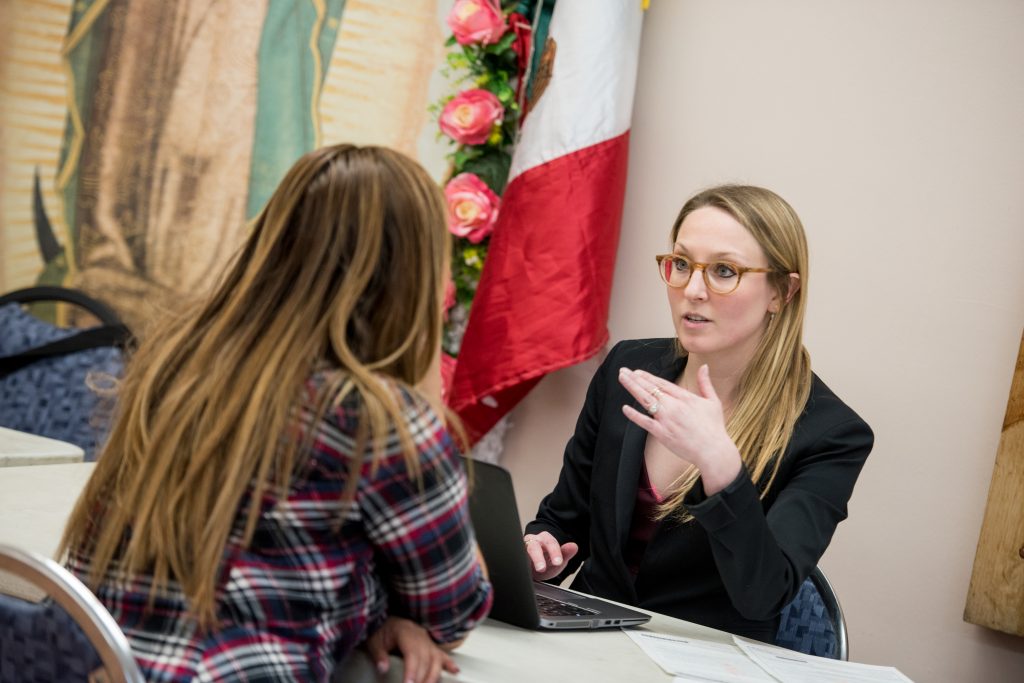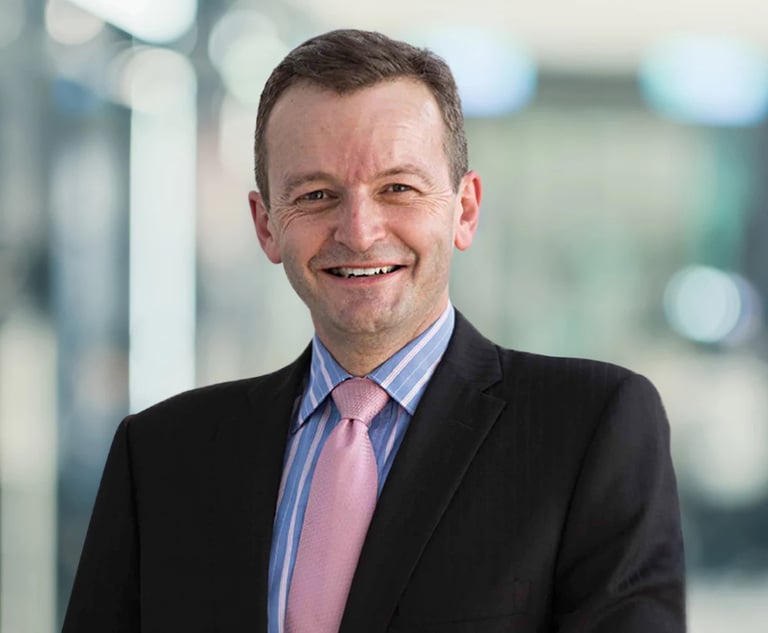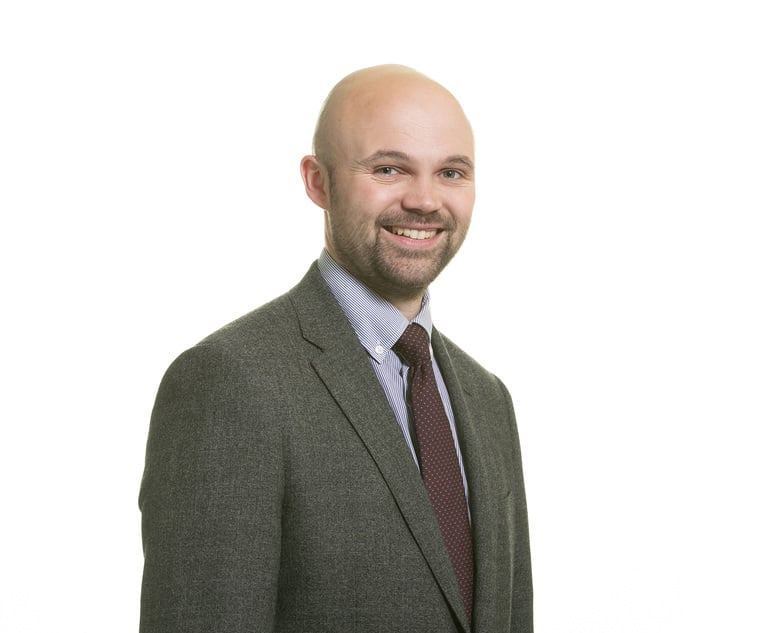2017 Law Grads Provided $82 Million in Pro Bono Work
A survey from the Association of American Law Schools assigns each volunteered hour with a $24.14 value.
January 05, 2018 at 11:52 AM
3 minute read

Law students who graduated in 2017 performed more than 3.39 million hours of pro bono work while on campus, which equates to nearly $82 million in free legal services.
A newly released survey by the Association of American Law Schools found that on average, recent law graduates logged 184 hours of pro bono service over the course of their studies. That includes time spent in law school clinics, in externships with legal service providers, and through student organizations and volunteer opportunities.
“The numbers are really impressive,” said Wendy Perdue, dean of the University of Richmond School of Law and the incoming president of the Association of American Law Schools. “It's a story I think many communities don't fully appreciate. I'm not sure university boards and presidents appreciate the services that their law students are providing. I'm enormously proud of my school and my fellow schools for adding to access to justice.”
The students themselves benefit from pro bono work by building skills and laying the foundation for successful careers, Perdue added.
The actual cumulative number of pro bono hours performed by recent law graduates is likely much larger. The 2017 survey was based on responses from just 94 of the 205 American Bar Association-accredited law schools, and it only includes time logged by juris doctor students. It excludes pro bono work performed by LL.M. students.
The association launched the pro bono survey in 2016 as a way to quantify the public service impact of law students nationwide and illustrate the positive impact legal education has on society.
The inaugural survey found that the class of 2016 completed more than 2.2 million hours of pro bono work, for an estimated value of $52 million. That finding was based on responses from 80 schools. The survey assigns each pro bono hour with a $24.14 value, a coalition of nonprofit organizations called Independent Sector.
It appears that the amount of pro bono service students assume is rising. The 184 average among the class of 2017 represents a 60-hour increase over the class of 2016—or 20 additional hours per year on campus.
There has been no shortage of opportunities for current law students and recent graduates to assist those who may not be able to afford a lawyer. Among the initiatives highlighted by the association are the College of William and Mary Marshall-Wythe School of Law's Election Day VOTEline, a voter assistance hotline; New York University School of Law's Policing Project, which seeks to improve policing through greater accountability; and Baylor University School of Law's Texas Legal Answers project, where students answer legal questions submitted via a website by low-income residents.
This fall, law students on numerous campuses helped those with status under Deferred Action for Childhood Arrivals program apply for extensions after the U.S. Department of Justice in September announced the repeal of the program that allows them to remain in the country.
A rash of hurricanes in Texas, Florida, and Puerto Rico also created opportunities for law students to assist. At Columbia Law School, a group of students created the Legal Corps for Puerto Rico—a network of volunteer attorneys who aim to assist people on the storm-ravaged Caribbean island navigate the bureaucracy of the Federal Emergency Management Agency, filing for unemployment or housing assistance, and other legal obstacles.
This content has been archived. It is available through our partners, LexisNexis® and Bloomberg Law.
To view this content, please continue to their sites.
Not a Lexis Subscriber?
Subscribe Now
Not a Bloomberg Law Subscriber?
Subscribe Now
NOT FOR REPRINT
© 2025 ALM Global, LLC, All Rights Reserved. Request academic re-use from www.copyright.com. All other uses, submit a request to [email protected]. For more information visit Asset & Logo Licensing.
You Might Like
View All
‘The US Market Is Critical’: KPMG’s Former Head of Global Legal Services On the Big Four Firm’s Legal Arm Entering the US
6 minute read


Trending Stories
- 1Midsize Firm Bressler Amery Absorbs Austin Boutique, Gaining Four Lawyers
- 2Bill Would Allow Californians to Sue Big Oil for Climate-Linked Wildfires, Floods
- 3LinkedIn Suit Says Millions of Profiles Scraped by Singapore Firm’s Fake Accounts
- 4Supreme Court Agrees to Hear Lawsuit Over FBI Raid at Wrong House
- 5What It Takes to Connect With Millennial Jurors
Who Got The Work
J. Brugh Lower of Gibbons has entered an appearance for industrial equipment supplier Devco Corporation in a pending trademark infringement lawsuit. The suit, accusing the defendant of selling knock-off Graco products, was filed Dec. 18 in New Jersey District Court by Rivkin Radler on behalf of Graco Inc. and Graco Minnesota. The case, assigned to U.S. District Judge Zahid N. Quraishi, is 3:24-cv-11294, Graco Inc. et al v. Devco Corporation.
Who Got The Work
Rebecca Maller-Stein and Kent A. Yalowitz of Arnold & Porter Kaye Scholer have entered their appearances for Hanaco Venture Capital and its executives, Lior Prosor and David Frankel, in a pending securities lawsuit. The action, filed on Dec. 24 in New York Southern District Court by Zell, Aron & Co. on behalf of Goldeneye Advisors, accuses the defendants of negligently and fraudulently managing the plaintiff's $1 million investment. The case, assigned to U.S. District Judge Vernon S. Broderick, is 1:24-cv-09918, Goldeneye Advisors, LLC v. Hanaco Venture Capital, Ltd. et al.
Who Got The Work
Attorneys from A&O Shearman has stepped in as defense counsel for Toronto-Dominion Bank and other defendants in a pending securities class action. The suit, filed Dec. 11 in New York Southern District Court by Bleichmar Fonti & Auld, accuses the defendants of concealing the bank's 'pervasive' deficiencies in regards to its compliance with the Bank Secrecy Act and the quality of its anti-money laundering controls. The case, assigned to U.S. District Judge Arun Subramanian, is 1:24-cv-09445, Gonzalez v. The Toronto-Dominion Bank et al.
Who Got The Work
Crown Castle International, a Pennsylvania company providing shared communications infrastructure, has turned to Luke D. Wolf of Gordon Rees Scully Mansukhani to fend off a pending breach-of-contract lawsuit. The court action, filed Nov. 25 in Michigan Eastern District Court by Hooper Hathaway PC on behalf of The Town Residences LLC, accuses Crown Castle of failing to transfer approximately $30,000 in utility payments from T-Mobile in breach of a roof-top lease and assignment agreement. The case, assigned to U.S. District Judge Susan K. Declercq, is 2:24-cv-13131, The Town Residences LLC v. T-Mobile US, Inc. et al.
Who Got The Work
Wilfred P. Coronato and Daniel M. Schwartz of McCarter & English have stepped in as defense counsel to Electrolux Home Products Inc. in a pending product liability lawsuit. The court action, filed Nov. 26 in New York Eastern District Court by Poulos Lopiccolo PC and Nagel Rice LLP on behalf of David Stern, alleges that the defendant's refrigerators’ drawers and shelving repeatedly break and fall apart within months after purchase. The case, assigned to U.S. District Judge Joan M. Azrack, is 2:24-cv-08204, Stern v. Electrolux Home Products, Inc.
Featured Firms
Law Offices of Gary Martin Hays & Associates, P.C.
(470) 294-1674
Law Offices of Mark E. Salomone
(857) 444-6468
Smith & Hassler
(713) 739-1250








